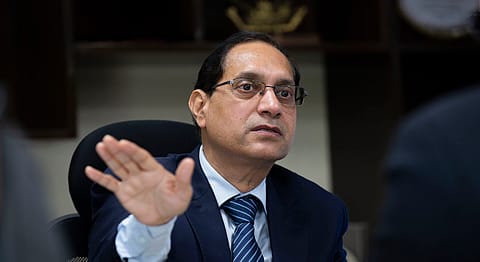Sebi proposes 3 key governance reforms for MIIs to prioritise public interest over profits
The proposals include appointing executive directors to key roles, defining management responsibilities, and setting norms for directorships. These changes aim to strengthen MIIs' regulatory framework, ensuring they focus on public interest and operational excellence over commercial gains.

India’s key market infrastructure institutions (MIIs), including stock exchanges, clearing corporations, and depositories, may soon face tighter governance norms as Sebi proposes sweeping reforms aimed at reinforcing their role as first-line regulators. In its latest "consultation paper", Sebi has mandated three key proposals to ensure this.
Sebi's 3 Key Proposals:
1.) Appointment of two executive directors (EDs) to the governing board: SEBI has proposed to mandate the appointment of two EDs, each heading critical operations and regulatory, compliance, risk management, and investor grievances as key management personnel (KMPs), who will serve on the MII's governing board.
2.) Defining roles and responsibilities: SEBI has proposed to clearly outline the broad roles and responsibilities of the MD, the proposed EDs, and specific KMPs such as the chief technology officer (CTO) and chief information security officer (CISO).
3.) Norms on directorships: Sebi has proposed to establish clear norms for the directorships of MDs and the proposed EDs of an MII in other companies.
The regulator says that in recent years, large MIIs such as stock exchanges, clearing corporations, and depositories have seen a rapid increase in investor base and volumes, and a growing network of intermediaries associated with them. They have experienced significant growth in revenue and profitability, and they enjoy high profit margins.
Given the vital role they play as first-line regulators and public utilities in the cause of capital formation, Sebi's paper outlines proposals aimed at strengthening the operational and governance framework of these institutions. It will also ensure they prioritise "public interest, technology and operations, and risk and compliance" over commercial considerations, says the regulator.
Recommended Stories
The regulator believes these measures will instil a culture that prioritises regulatory and operational excellence at both the governing board and operating levels of MIIs. They will also ensure robust succession planning and adept governance structures to reflect the increasing complexity and significance of MIIs. Apart from enhancing the safety and reliability of the securities market, the new structure also fosters an environment conducive to innovation.
Notably, MIIs serve as the backbone of the capital market, providing essential infrastructure for trading, clearing & settlement, and holding of securities. Their unique operating model empowers them to regulate their paying members and listed companies. While they operate as efficient and competitive commercial entities, their primary mandate is to serve as crucial public utilities and first-line regulators for capital markets.
The governing board of an MII, comprising the MD, non-independent directors (NIDs), and public interest directors (PIDs), plays a vital role in ensuring that public interest is prioritised in all MII operations. Currently, SEBI mandates an equal or higher number of PIDs on the governing board to ensure the primacy of public interest.